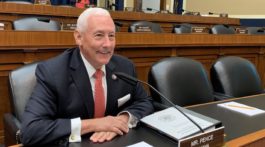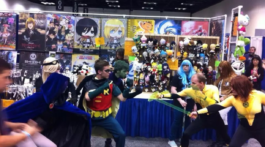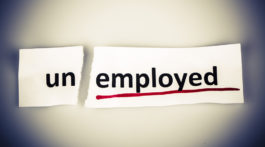by Abdul-Hakim Shabazz
This histrionic outbursts and outrage over the thought of Indiana lawmakers having to go into a special session in mid-May (and subsequent shrieking over lawmaker pay) are not only laughable but once again proves we don’t spend enough money on civics education in this state.
As you are probably aware, since you are reading this, last week Indiana lawmakers hit their sine die (that’s fancy Latin for adjourning for the year) deadline with several bills still on the table which means they were dead for the session. The legislation included school safety dollars, money for Muncie schools and some changes to the tax code to put it more in line with recent federal tax reform. Also dying was legislation regarding autonomous vehicles.
There were a lot of reasons as to why this happened and plenty of blame to go around. Some lawmakers were a little difficult to deal with, there were some honest differences of opinions, over in the Senate there were some leadership issues coupled with the fact that the recent retirements of some experienced lawmakers also played a role. Regardless, some bills died.
Fast forward a few days later, and Governor Eric Holcomb decides to call a special session to deal with a handful of items and based on the reaction from some Democrats and some other members of the outrage class, you would think RFRA was making a comeback.
One of the big issues was whether lawmakers should get paid for going into “overtime” and would they take a salary. Democrats, which include some of the same people who fled the state in 2011 over Right to Work and then sued the state to get their back pay, have called on Republicans to donate their pay, Republicans responded, and by my last count about 15 of them will donate to charity, which is five more members than the entire Senate Democratic caucus.
Once again, this entire controversy shows how little people understand the process. In addition to their base salary, Indiana lawmakers get a per diem. They make $173 a day when they are in session. They earn $69.20 per day if they are not in session. And if they are out of session and have to come down to the statehouse for work, they get both, but they have to sign in. And they also get the standard mileage reimbursement rate of about 54 cents per mile.
So assuming lawmakers did not have to come back, the taxpayers would have been paying each of them $69.20 per day, which translates into $6,920. Assuming a special session takes three days, if lawmakers do come back, they (all 150) will get paid about $78,000 in per diem. Please note, you’re already paying them nearly $21,000 over the same period regardless, and that’s only if none of them are down here for work. I can think of a lot of things to get worked up over, but $57,000 over a three-day window to come back and get some work done ain’t one of them.
Part of the problem is that Statehouse Republicans have been victims of their own success. They’ve balanced the budget every year since taking office. They’ve created healthy cash reserves to weather financial storms which have helped the state’s credit rating. They’ve responsibly cut taxes while increasing school funding. Republicans came up with a long-term road funding plan that is the envy of the nation and made Indiana one of the best places in the country for job creation, so much so that Amazon is looking at setting up shop here in the heartland. With all that success, I can see why some folks might be shocked that lawmakers have to go long because they couldn’t reach agreements on other issues.
Well, guess what, sometimes even the best Statehouses have issues. But this is the first special session since 2009, which was a budget fight and the first time a special session was needed regarding a short session, by all accounts since 2002. Overall, that’s not a bad track record. It would be one thing if lawmakers were missing deadline after deadline and ended up having to come back and do the people’s business, but that’s not the case here. This special session is the exception, not the rule. Now if it happens again next year, that’s a different story, but for now, people just need to calm down and put the histrionic displays of outrage on the table. It’s not special.
Abdul-Hakim is the editor and publisher of IndyPolitics.Org. He is also an attorney with the law firm of Lewis and Wilkins LLP. His opinions are his own, but you are free to adopt them.














